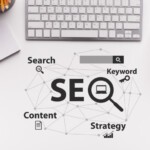In the digital age, businesses are constantly striving to reach their target audience and maximize their online visibility. One effective method to achieve these goals is through pay per click (PPC) advertising. PPC advertising allows businesses to place ads on search engines and other platforms, paying only when a user clicks on their ad. This article explores the world of professional pay per click advertising, its benefits, strategies, and how it can help businesses achieve their marketing objectives.
## Table of Contents
1. Introduction to Pay Per Click Advertising
2. The Benefits of Professional PPC Advertising
3. Choosing the Right PPC Platform
4. Keyword Research and Targeting
5. Crafting Compelling Ad Copy
6. Optimizing Landing Pages
7. Setting Up Conversion Tracking
8. Analyzing and Optimizing Campaign Performance
9. Remarketing and Ad Extensions
10. Mobile PPC Advertising
11. Local PPC Advertising
12. Budgeting and Cost Management
13. Hiring a Professional PPC Agency
14. Keeping Up with PPC Industry Updates
15. Conclusion
## 1. Introduction to Pay Per Click Advertising
Pay per click advertising, also known as PPC advertising, is a digital marketing model where advertisers pay a fee each time their ad is clicked. It is an auction-based system where advertisers bid for ad placement on search engine results pages (SERPs) or other platforms. PPC advertising offers businesses a way to drive targeted traffic to their websites, generate leads, and increase brand visibility.

## 2. The Benefits of Professional PPC Advertising
Professional PPC advertising can provide numerous benefits for businesses of all sizes. Some key advantages include:
### Instant Visibility and Targeted Reach
PPC advertising allows businesses to quickly gain visibility in search engine results and other platforms. By targeting specific keywords and demographics, businesses can reach their desired audience effectively.
### Cost Control and Measurable Results
With PPC advertising, businesses have complete control over their budget. They can set daily or monthly spending limits and pay only for actual clicks. Additionally, PPC campaigns provide detailed performance metrics, allowing businesses to measure the effectiveness of their ads and make data-driven decisions.
### Increased Brand Exposure
A well-executed PPC campaign can significantly enhance a brand’s visibility. By appearing at the top of search results and displaying eye-catching ads, businesses can build brand awareness and attract more customers.
### Quick and Flexible Campaign Setup
Setting up a PPC campaign is relatively quick and straightforward. With the right tools and expertise, businesses can launch targeted ads within hours and make adjustments on the fly to optimize their campaign performance.
## 3. Choosing the Right PPC Platform
When considering professional PPC advertising, it is crucial to choose the right platform that aligns with your business goals. The most popular PPC platforms include:
– Google Ads (formerly Google AdWords): The largest and most widely used PPC platform, offering access to a vast audience through Google’s search network and display network.
– Bing Ads: Microsoft’s PPC platform, which reaches a significant portion of search engine users.
– Social Media Advertising: Platforms like Facebook, Instagram, Twitter, and LinkedIn offer PPC advertising options, allowing businesses to target specific demographics and interests.
## 4. Keyword Research and Targeting
Effective keyword research is the foundation of a successful PPC campaign. By understanding the search terms and phrases that your target audience uses, you can optimize your ads to appear in relevant search results. Tools like Google Keyword Planner and SEMrush can help identify high-performing keywords and estimate search volumes.
## 5. Crafting Compelling Ad Copy
To capture the attention of potential customers, it’s essential to create compelling and relevant ad copy. The ad should highlight the unique selling points of your products or services and include a strong call-to-action. Split testing different variations of ad copy can help identify the most effective messaging.
## 6. Optimizing Landing Pages
When users click on your PPC ads, they should be directed to landing pages that align with their search intent. Landing pages should have clear and concise information, a strong value proposition, and compelling visuals. Optimizing landing pages for conversions can significantly improve the performance of your PPC campaigns.
## 7. Setting Up Conversion Tracking
To measure the success of your PPC campaigns, it’s crucial to set up conversion tracking. Conversion tracking allows you to track specific actions that users take on your website, such as purchases, form submissions, or newsletter sign-ups. Google Analytics and other tracking tools provide valuable insights into your campaign’s performance.
## 8. Analyzing and Optimizing Campaign Performance
Continuous analysis and optimization are key to running successful PPC campaigns. Monitoring the performance of your ads, adjusting bidding strategies, refining keyword targeting, and optimizing landing pages based on data-driven insights can lead to improved campaign efficiency and higher ROI.

## 9. Remarketing and Ad Extensions
Remarketing is a powerful PPC strategy that targets users who have previously interacted with your website. By displaying tailored ads to these users across various platforms, you can reinforce your brand message and increase conversion rates. Additionally, utilizing ad extensions such as site links, call extensions, and structured snippets can enhance the visibility and performance of your ads.
## 10. Mobile PPC Advertising
With the increasing use of smartphones, mobile PPC advertising has become indispensable. Mobile-specific ad formats and targeting options allow businesses to reach users on their mobile devices effectively. Optimizing landing pages for mobile devices and implementing click-to-call functionality can further enhance mobile campaign performance.
## 11. Local PPC Advertising
For businesses targeting a specific geographical area, local PPC advertising is highly effective. Platforms like Google Ads provide location targeting options, allowing businesses to display ads to users within a specific radius of their business location. Local PPC advertising can help drive foot traffic to physical stores and increase local brand awareness.
## 12. Budgeting and Cost Management
Careful budgeting and cost management are essential for successful PPC advertising campaigns. Businesses should determine their advertising budget based on their marketing objectives and allocate funds strategically across campaigns and platforms. Regular monitoring of campaign costs and performance metrics ensures optimal spending and maximum return on investment.
## 13. Hiring a Professional PPC Agency
While managing PPC campaigns in-house is possible, many businesses choose to hire professional PPC agencies. PPC experts possess in-depth knowledge and experience in campaign setup, optimization, and analysis. They can save businesses time and resources while delivering superior results.
## 14. Keeping Up with PPC Industry Updates
The PPC landscape is constantly evolving, with new features, algorithms, and trends emerging regularly. Staying informed about industry updates and best practices is essential to maintain a competitive edge. Following reputable digital marketing blogs, attending industry conferences, and engaging in professional networks can help businesses stay up to date with the latest PPC advancements.
## 15. Conclusion
Professional pay per click advertising offers businesses an effective means to increase online visibility, generate leads, and maximize their marketing efforts. By following best practices, conducting thorough keyword research, creating compelling ad copy, and continuously optimizing campaigns, businesses can achieve outstanding results. Embracing the power of PPC advertising and staying abreast of industry developments can position businesses for long-term success in the digital landscape.
## FAQs (Frequently Asked Questions)
1. What is pay per click advertising?
Pay per click advertising is a digital marketing model where advertisers pay a fee each time their ad is clicked. It
allows businesses to drive targeted traffic to their websites and increase brand visibility.
2. How does PPC advertising work?
PPC advertising works through an auction-based system, where advertisers bid for ad placement on search engine results pages or other platforms. Advertisers pay only when a user clicks on their ad.
3. Which platforms offer PPC advertising?
Popular PPC platforms include Google Ads, Bing Ads, and social media platforms like Facebook and LinkedIn.
4. How can PPC advertising benefit my business?
PPC advertising provides instant visibility, cost control, measurable results, increased brand exposure, and quick campaign setup.
5. Should I hire a professional PPC agency?
Hiring a professional PPC agency can be beneficial as they have expertise in campaign management, optimization, and analysis, saving businesses time and resources.
In conclusion, professional pay per click advertising is a powerful tool for businesses seeking to expand their online presence and achieve marketing success. By implementing the strategies and best practices outlined in this article, businesses can harness the potential of PPC advertising to drive targeted traffic, increase conversions, and propel their growth in the digital landscape.









Add comment